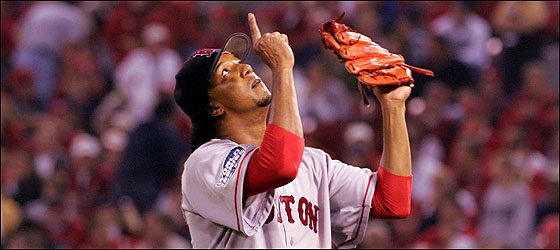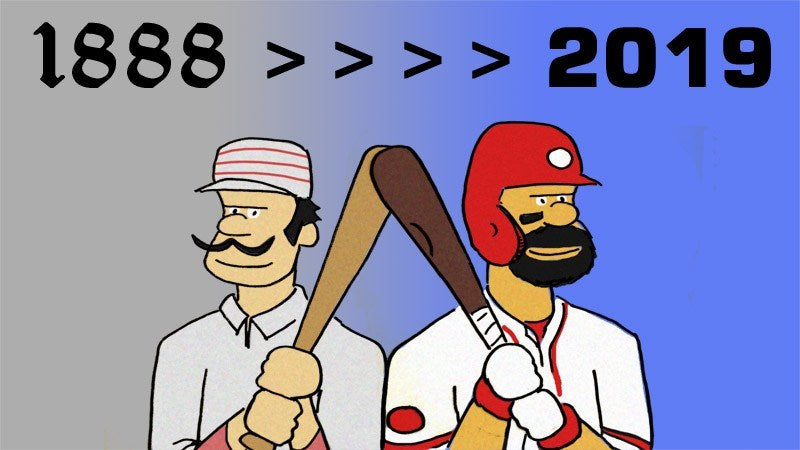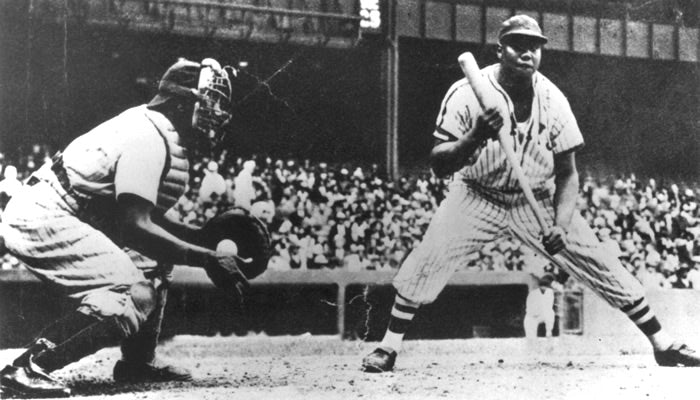
Faith, Flavin and Fenway: Dick Flavin at the Plate
Update December 31, 2022: On Wednesday, December 28, 2022, Quincy native and Red Sox poet laureate Dick Flavin passed away at South Shore Hospital. The multi-talented Flavin worked as a speechwriter for Ted Kennedy and as press secretary during Boston Mayor Kevin White's administration. A political commentator and satirist, Dick served as the public address announcer at his beloved Fenway park. He was a member of the Massachusetts Broadcasters Hall of Fame. In 2019, Caseyatthe.blog paid tribute to Dick Flavin, reproducing his article on the role of faith in sports from TheBostonPilot.com.
August 5-6, 2019: This week an event at the future home of the Triple-A Red Sox affiliate in Worcester, Massachusetts brought former Red Sox battery-mates Rich Gedman, a Worcester native, and Dennis "Oil Can" Boyd together for the "first pitch" thrown across the proposed location of home plate. Current Paw Sox manager Billy McMillon and three Triple-A prospects (pitcher Trevor Kelley, catcher Jake Romanski, and outfielder Cole Sturgeon) treated the children in attendance to a trot around the future base paths of Polar Park.

Dennis "Oil Can" Boyd leads the children around the base paths of the future Polar Park in Worcester
In April 2021, the team (not yet officially christened, but already nicknamed the WooSox by local citizens) will begin the season in a new 10,000-seat stadium, the center of a $240 million redevelopment anticipated for hotels, stores, residences, and offices to cluster on this former industrial property in the Canal District. In the vacant parking lots of those by-gone industries, Red Sox catcher Rich Gedman played with his classmates from the nearby Lamartine Street School.

The Thayer residence at 67 Chatham Street has been demolished, but this neighboring Queen Anne home remains to represent the history of Worcester's Crown Hill neighborhood
And in the early spring of 1888, about a half mile uphill from this site, on Chatham Street in the Crown Hill neighborhood favored by the city's elite, a young man recently returned from San Francisco--where he had worked for the Examiner as a sports reporter, humor columnist, and balladeer, sat at his desk to write "Casey at the Bat." In August 2019, on the auspicious occasion inaugurating Polar Park's home plate, Dick Flavin, the Red Sox "poet laureate," recited Ernest Thayer's verses and reminded his audience of Worcester's unique place in the balladry of baseball.
I remembered Dick Flavin from a wonderful piece published in May in the online version of The Pilot, a longstanding Boston newspaper covering news and opinion within the Catholic Church. The words I've added here are merely introductory to Dick Flavin's "Prayers--Answered and Otherwise" which we reproduce in full below. Dick offers some memorable thoughts about the role of faith--and prayer-- in sports. Particularly he reminds us, when and if we pray for our team to win, we must recognize that the opposing team and its partisans are praying with equal fervor to the same God. Then compare our passionate pleadings with the humble prayer offered by Carl Yastrzemski--and cited by Flavin, below--before every game.
 "With a smile of Christian charity, great Casey's visage shone...."
"With a smile of Christian charity, great Casey's visage shone...."
Dick did not include in his fine essay the role of faith in "Casey at the Bat." But "Casey" contains within its compact thirteen-stanza framework a cornucopia of wisdom from ancient epic, classical poetry, human psychology, Scottish and English balladry, Greek drama, Aristotelian Poetics, and spiritual precept. You will remember that Casey quells the riotous Mudville partisans "with a smile of Christian charity." I think Thayer intended to place the character of Casey within the Christian tradition, and for us to recognize his peacemaker role as that blessed by Jesus in the Sermon on the Mount. But even so, Casey's virtues--whether classical or Christian in origin--did not save him on this occasion. An intemperate pride in his own abilities--Aristotle called it hubris--ultimately brought Casey low.
The only antidote to hubris in sports, Flavin suggests, is humility.
But enough of introduction--here's the wit and wisdom of Dick Flavin from TheBostonPilot.com (May 24, 2019):

It is commonplace to see a player demonstrate his faith ...whether it be a look to the heavens or tracing a symbol in the dirt with his bat.
Prayers--Answered and Otherwise
For many years, I used to have the same recurring dream. In it, I am a player for the Boston Red Sox (I told you I was dreaming) and, in my first major league at-bat, I am called upon to pinch hit in a tense situation. The opposing team is never specifically identified in my dream, nor is the pitcher I'd be facing, beyond that he is well-known for his blinding fastball.
In my dream, just before I step into the batter's box, I bless myself by making the sign of the cross. This is done baseball-style as opposed to the demonstrative method employed, for example, by a priest from the altar in which he majestically touches his forehead, stomach, and both shoulders. The baseball-style blessing is almost a phantom sign of the cross in which a player just points for an instant to his forehead, torso, and shoulders. He seldom if ever makes actual contact with any of those body parts, but the player's blessing means the same thing as the priest's; he is calling upon the Lord for His intercession and His divine help.
Having thus blessed myself, I take my stance in the batter's box, calmly confident that I have God on my side in the upcoming at-bat. Then I look on in horror as the opposing pitcher, the one with the great fastball, steps off the rear of the mound and -- wait for it -- he makes the sign of the cross! There goes my secret weapon. Now the pitcher versus batter battle becomes one that will be decided on merit, and that does not bode well for me.
At this point my dream always ended, which is just as well. It was rapidly becoming a nightmare. If I even fouled one off against the mysterious pitcher in my dreams, that would qualify as a miracle.
It is commonplace to see a player demonstrate his faith, whatever it may be, in some small way during the course of a ballgame, whether it be a look to the heavens or tracing a symbol in the dirt with his bat. All players know that doing so is never a guarantee of success because all players have experienced the failure that is intrinsic to the game. That God does not take sides in baseball games, or in any sport, is a lesson that we all learn early in life.
Still, prayer in sports can have a beneficial effect. It calms a player down during a high-stress time, it reminds him that there is something bigger and more important than himself involved in everything we do, not just an at-bat, a pitch, or a single game; it puts him in a position where he can concentrate on the task at hand -- just as long as he understands that it's not going to help to get his bat around on a ninety-eight mile an hour fastball. If it did, the pope would win the Triple Crown every year.

Carl Yastrzemski in a reflective moment
A lot of players pray as an integral part of their in-game rituals. Carl Yastrzemski is a guarded person who doesn't reveal much about his private life, but right after the 1967 Red Sox Impossible Dream season, when Yaz won the Triple Crown (we could have called him Your Holiness that year), he wrote a memoir in which he let us in on a secret; just before the start of every game he said a quiet Hail Mary, praying to: "Please let me relax, and be with me, and let me play my natural game, to the best of my ability, and not be injured." That, coupled with a lifetime of dedication to the game, a Herculean work ethic, and a large dose of God-given talent, was enough to propel him into the Hall of Fame on the first ballot.
It brings to mind an old story about a farmer who, through hard work and dedication, developed what had been a run-down piece of land into a very successful farm, yielding bountiful crops every year. One day, the local pastor paid him a call. The pastor looked out across the fields and said, "This is a beautiful spread that you and the good Lord have put together." To which the farmer replied, "Yep, but you should have seen it when the good Lord had it to Himself."

Ted Williams, Johnny Pesky, Dom Dimaggio, and Bobby Doerr--legendary baseball friends. Flavin, Johnny, and Dom visited Ted only a few months before Ted's passing in 2002; Doerr was unable to make the trip, commemorated in David Halberstam's The Teammates (2004)
I haven't had that dream about coming up to bat at Fenway Park in some years; I think it's because I actually did once step up to home plate there in a high-pressure situation. The occasion was a memorial tribute to Ted Williams shortly after the great slugger's death in 2002. There were about 25,000 people in the ballpark, including many dignitaries, plus me. I had been asked to recite "Teddy at the Bat," a send up of "Casey at the Bat," that I had recited for Ted, Dom DiMaggio, and Johnny Pesky during a visit to Ted's home some months earlier. The tribute was televised live, there would be no retakes or do-overs, but that and the big crowd in the park is not what caused my stress level to skyrocket. It was the old public address system, in which there was a five-second delay between the time something was said and the time it went out over the loudspeakers. It was still in use at the time of the tribute to Ted. It was difficult enough to speak under those conditions, but to recite a five minute-long poem was a train-wreck waiting to happen. I had to maintain its pacing, deliver a specified number of syllables in each line, and remember the rhymes, all while hearing what I had just said five seconds earlier reverberate throughout the ballpark. I knew that if all the distractions caused me to stumble I was in danger of losing my concentration and my train of thought could disappear into the ozone layer. Only my laundryman knew how nervous I was, so as I was being introduced for my recitation I said a brief prayer. It was nothing profound, something like, "Please God, help me get through this without making a complete ass of myself," but it eased my anxiety and allowed me to focus on the task at hand.
My little prayer hadn't been much, but it was enough to get me through the recitation without totally imploding, thank God; or perhaps I should say, "Thanks, God."
Dick Flavin is a New York Times bestselling author; the Boston Red Sox “Poet Laureate” and The Pilot’s recently minted Sports’ columnist. Flavin's book Red Sox Rhymes: Verses and Curses can be accessed here .
Cover Photo: Legendary Red Sox pitcher Pedro Martinez points skyward with characteristic gesture of gratitude for a successful inning
Thanks to Worcester Telegram and Gazette (@tgsports; @telegramdotcom ) for event photos from site of future Polar Park
 "With a smile of Christian charity, great Casey's visage shone...."
"With a smile of Christian charity, great Casey's visage shone...."



Leave a comment
This site is protected by hCaptcha and the hCaptcha Privacy Policy and Terms of Service apply.